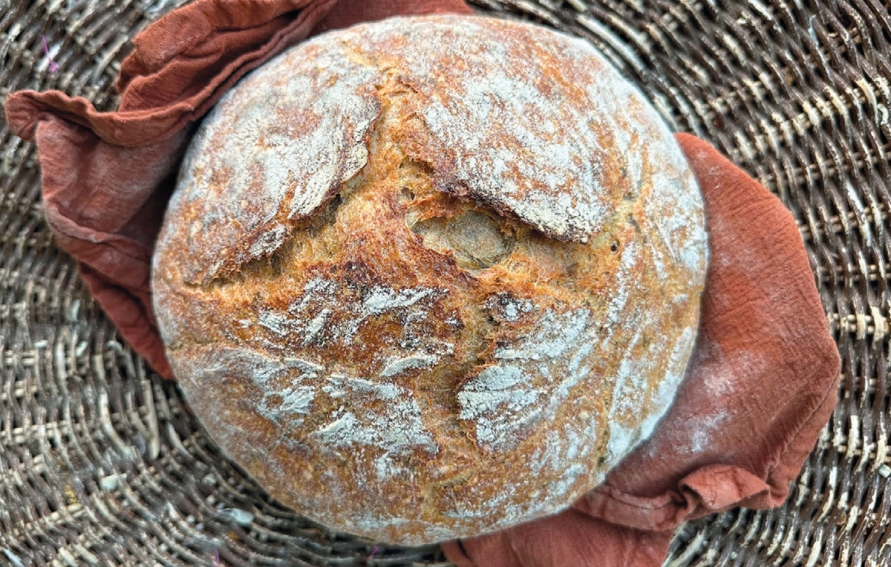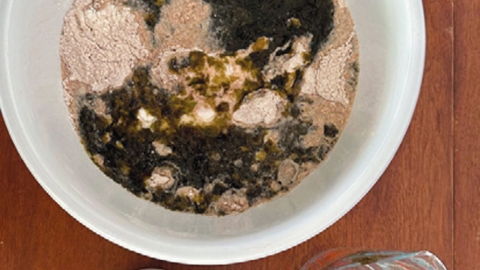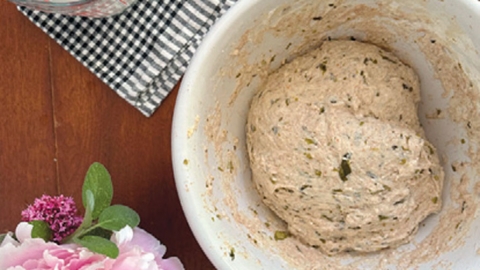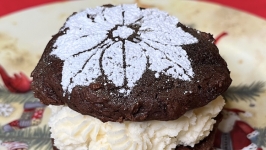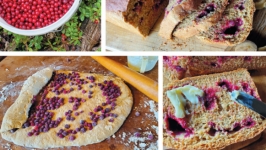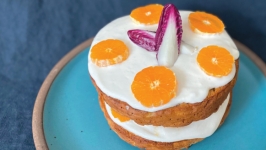Ingredients
- 5¾ cups white flour
- ½ cup whole wheat flour
- 1½ cups sugar kelp, raw or blanched
- 1–2¾ cups hot water
- 1 tablespoon salt
- 1⅓ cups active sourdough starter or 1 teaspoon active dry yeast
Preparation
To enjoy the bread in the morning, begin making it the previous afternoon.
On day 1, at about 4 pm, mix dough: combine flour in a large mixing bowl. Put 1 to 1½ cups of raw sugar kelp in a liquid measuring cup. Fill with hot water so the kelp-water combination reaches the 2¾ cups mark.
Purée kelp and water in blender for 30 seconds. Add the kelp-water mixture to the flour, and mix until just combined. Let sit for 20 minutes.
Add sourdough starter (or yeast) and salt and combine the mixture into a soft dough. Stretch and fold or knead the dough an additional 3 times over the following hour. In between folds, let the dough rest in the bowl, covered with a tea towel.
At around 9 pm, shape the loaves: with floured hands, scrape the dough onto a floured surface. Divide into 2 large loaves, or 12 rolls. Fold the edges of each loaf into the center once again, and flip so the folded side faces down. Cover and let sit in the refrigerator to rise overnight.
On day 2, in the morning, bake the loaves: place a Dutch oven (with lid) in your oven, preheating both to 475° F. Once preheated, remove the Dutch oven and place 1 loaf (or 6 rolls) inside. Replace the lid, and bake covered for 40 minutes, then uncovered for 10 minutes.
Remove the bread from the Dutch oven. Let it cool for 15 to 20 minutes and enjoy listening to it crackle. Eat with generous amounts of butter.

